Ukraine: Cambridge professor fears for elderly immobile mother in Mariupol
- Published
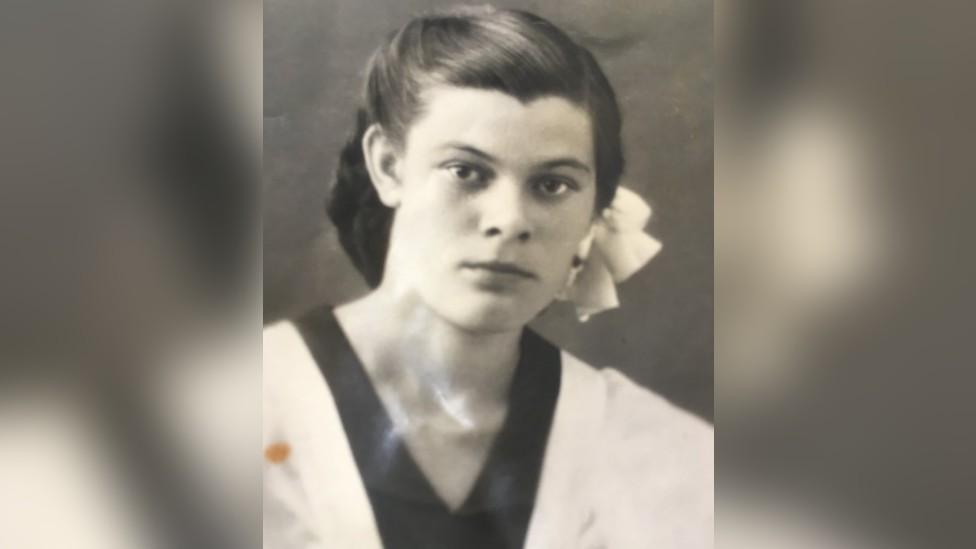
Prof Andrei Kirilenko said this photo was taken of his mother the year she went to college in Kharkiv, in Ukraine
A Ukrainian teaching at the University of Cambridge said he fears for the safety of his elderly, immobile mother, after Russian troops surrounded Mariupol, in Ukraine, where she lives.
Prof Andrei Kirilenko said his mother Svetlana, 85, did not want to leave despite her part of the port city in the south-east being evacuated.
He had not been able to contact her for three days, since the power was cut.
He said he just wanted to speak with her "one more time".
"I feel there is nothing I can do," he said.
"If she hasn't yet been destroyed by the shelling, I think... the trauma, the pressure, the stress... is immense.
"She is resilient, but then the most resilient people only have so much in them."

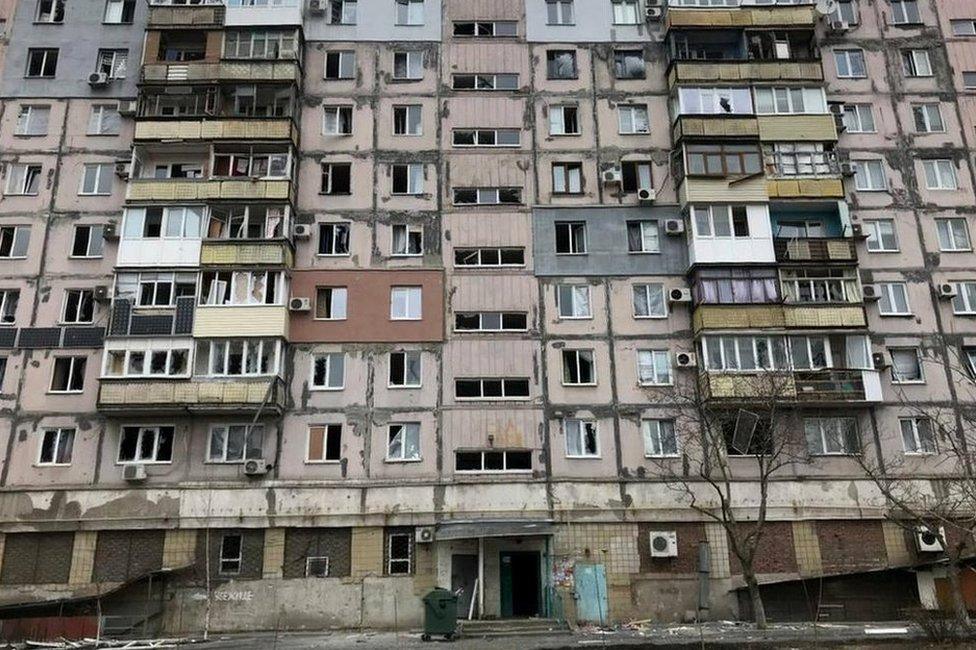
A damaged residential building in the Ukrainian port city of Mariupol
Mariupol apparently remains under Ukrainian control but it is likely it has been encircled by Russian forces and the infrastructure has been subjected to intense Russian strikes.
On Thursday morning, the city's Deputy Mayor Serhiy Orlov said the whole of Mariupol was now without power, water, or its sanitation system.
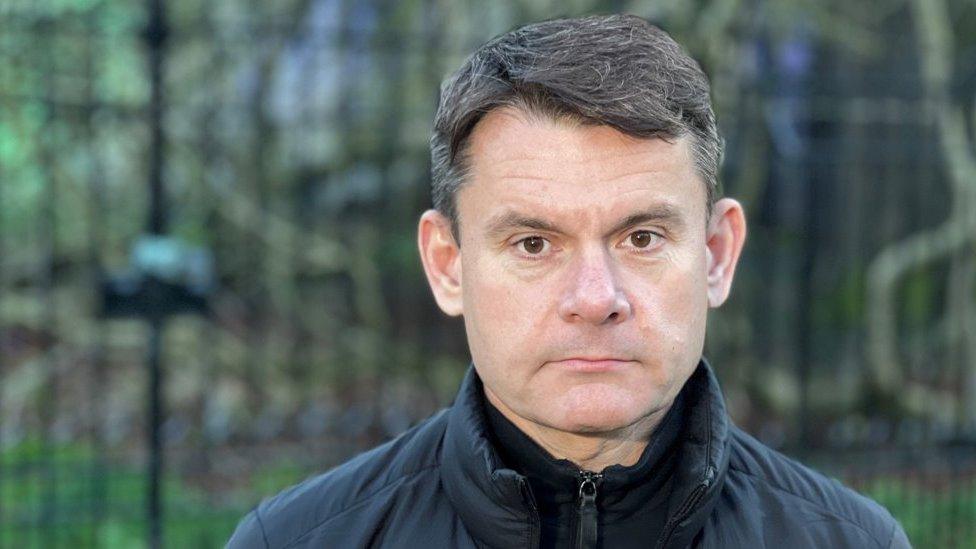
Andrei Kirilenko is a professor of finance at the university's Judge Business School
Prof Kirilenko, who was born in Mariupol, wrote on Twitter, external that his mother had "survived... Hitler's occupation, Soviet economic colonisation, and is now in Putin's war".
"It's all the same to her - taking away her freedom."
On 27 February, Prof Kirilenko wrote, external that his mother's area of the town had been evacuated, "but she is staying. She said: 'My life started in poverty and it ends in war'".
He managed to speak with his mother briefly on 1 March, but said her phone battery was dying and she could not recharge it because there was no power in Mariupol.
Neighbours had been looking after his mother, but he has not been able to reach anyone.
Last time he spoke with his mother, he said: "She was up and down in terms of her mood - she was definitely very scared.
"Her feeling is, it will just take too much time and effort to evacuate her out of her home and out of the war zone, and her plans are basically to stay put for as long as she can because she feels that really the world belongs to the future, to the women and children and the younger generations."
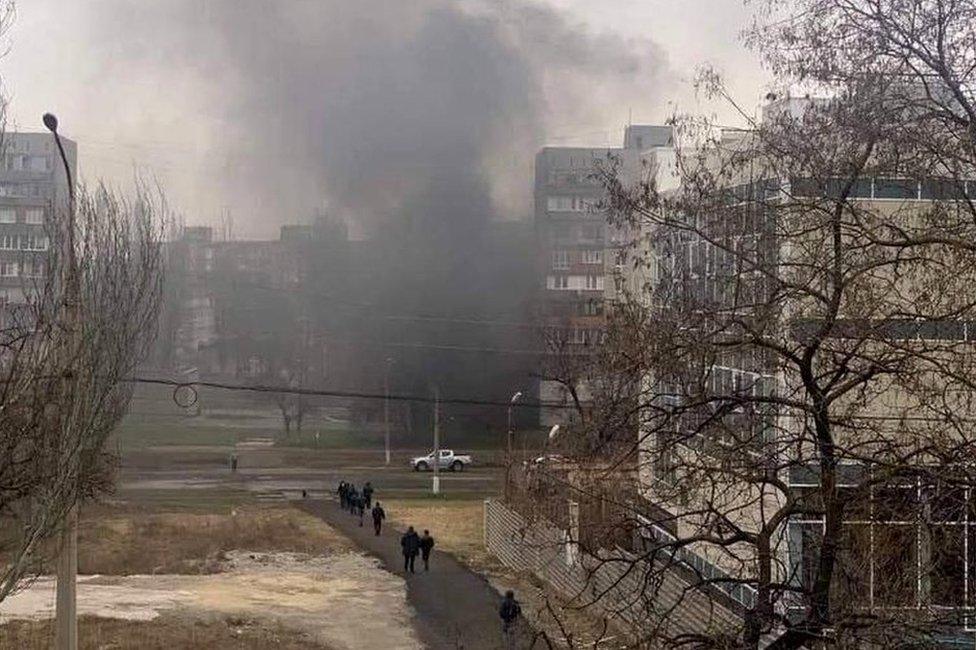
Smoke rising in a residential district of Mariupol

More coverage of war in Ukraine
THE BASICS: Why is Putin invading Ukraine?
SCENARIOS: Five ways the war in Ukraine might end
INNER CIRCLE: Who's in Putin's entourage, running the war?
IN DEPTH: Full coverage of the conflict


Prof Kirilenko said Mariupol was being turned into "a humanitarian catastrophe - it's besieged on all sides".
"My feeling is, it looks medieval to me... it doesn't look like 21st Century Europe, and I think... it's barbarian."
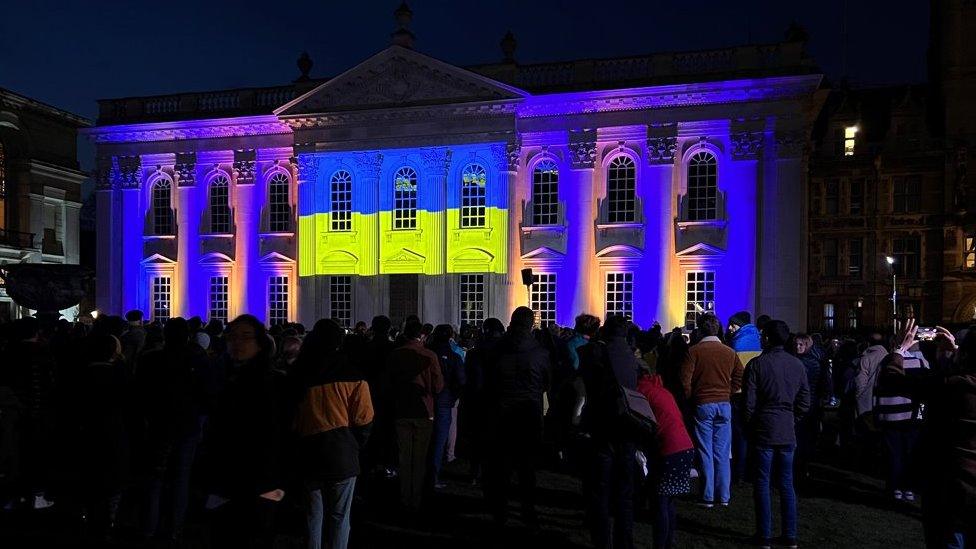
Prof Kirilenko and about 1,000 others attended a vigil for Ukraine at the university's Senate House on Thursday
He said he hoped that if his mother's neighbours had managed to escape Mariupol, they might have had "the resources to take her with them".
"At least I hope to be able to speak with her at least one more time," he said.
"I am unlikely to be able to see her again, but I'd like to be able to at least speak with her once more."

Find BBC News: East of England on Facebook, external, Instagram, external and Twitter, external. If you have a story suggestion email eastofenglandnews@bbc.co.uk, external